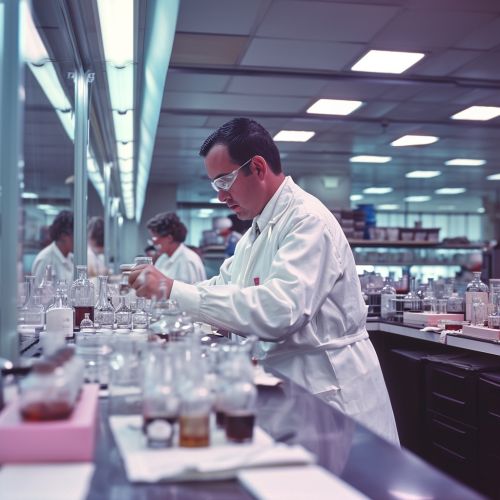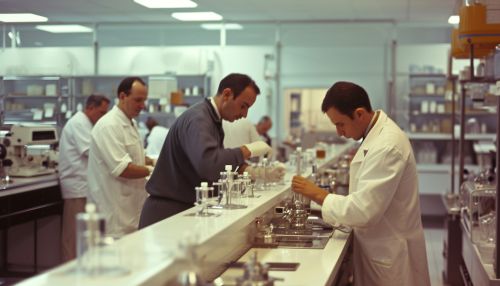Biomedical Industry
Overview
The Biomedical Industry is a sector that focuses on the application of biological and physiological principles to the development and design of clinical tools, devices, and techniques. This industry is a fusion of biology and medicine, using advanced technology to improve healthcare delivery and patient outcomes.
History
The roots of the biomedical industry can be traced back to the late 19th and early 20th centuries, when the first medical devices were developed. However, it wasn't until the late 20th century that the industry began to take shape in its current form, with the advent of advanced technologies such as biotechnology, genetic engineering, and nanotechnology.


Key Areas
The biomedical industry encompasses several key areas:
Biotechnology
Biotechnology is the use of living systems and organisms to develop or make products. In the biomedical industry, biotechnology is used to develop new drugs, therapies, and diagnostic tools.
Medical Devices
The medical device sector of the biomedical industry involves the design, development, and manufacture of devices used in healthcare, such as diagnostic equipment, surgical instruments, and patient monitoring systems.
Pharmaceuticals
The pharmaceutical industry is a significant part of the biomedical industry, focusing on the discovery, development, and production of drugs for medical use.
Biomedical Engineering
Biomedical engineering is a multidisciplinary field that applies engineering principles to the medical and biological sciences. It involves the design and development of biomedical devices, systems, and processes.
Current Trends
The biomedical industry is continually evolving, driven by technological advancements and the ever-changing needs of the healthcare sector. Some current trends in the industry include:
Personalized Medicine
Personalized medicine, also known as precision medicine, is a medical model that proposes the customization of healthcare, with medical decisions, treatments, practices, or products being tailored to the individual patient.
Telemedicine
Telemedicine is the use of telecommunication and information technology to provide clinical health care from a distance. It has been used to overcome distance barriers and to improve access to medical services that would often not be consistently available in distant rural communities.
Regenerative Medicine
Regenerative medicine is a branch of translational research in tissue engineering and molecular biology which deals with the process of replacing, engineering or regenerating human cells, tissues or organs to restore or establish normal function.
Challenges
Despite its advancements, the biomedical industry faces several challenges:
Regulatory Compliance
The biomedical industry is heavily regulated, with stringent standards and regulations in place to ensure the safety and efficacy of products. Compliance with these regulations can be a significant challenge for companies in the industry.
Ethical Considerations
The biomedical industry often grapples with ethical issues, particularly in areas such as genetic engineering and stem cell research. Balancing the potential benefits of these technologies with ethical considerations is a significant challenge.
Research and Development Costs
The cost of research and development in the biomedical industry is high. This, coupled with the long development timelines for new products, can make it difficult for companies to recoup their investment.
Future Outlook
The future of the biomedical industry looks promising, with several emerging trends likely to shape the industry in the coming years. These include the increasing use of artificial intelligence in healthcare, the rise of precision medicine, and advances in regenerative medicine.
